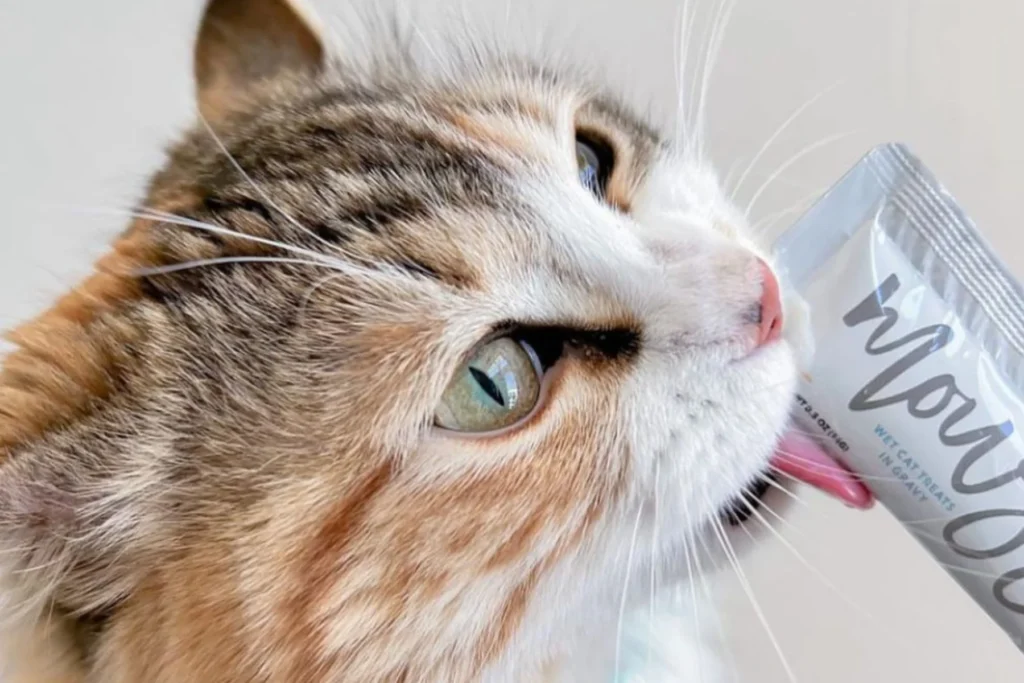Cats, our enigmatic companions, have dietary requirements that are as unique as their personalities. As obligate carnivores, their nutritional needs are vastly different from those of other pets. Choosing the right food for your feline friend is not just about picking a brand; it’s about understanding the intricate balance of nutrients that will keep them healthy, active, and content. This article delves into the essential nutritional needs of cats, explores the various types of cat food available, and provides practical tips for selecting the best diet for your beloved pet.
Understanding the Nutritional Needs of Cats
Cats require a diet high in animal protein to thrive. Unlike omnivores, they have a limited ability to digest carbohydrates and rely heavily on proteins and fats for their energy. Proteins provide essential amino acids, such as taurine, which is crucial for heart function, vision, and reproduction. Without sufficient taurine, cats can suffer from severe health issues, including dilated cardiomyopathy and blindness. Fats, particularly omega-3 and omega-6 fatty acids, are vital for maintaining healthy skin, a shiny coat, and proper brain function. These nutrients also play a role in reducing inflammation and supporting overall cellular health.
In addition to proteins and fats, cats need a range of vitamins and minerals to stay healthy. Vitamin A is essential for vision and immune function, while vitamin D aids in calcium absorption and bone health. B vitamins, such as niacin and thiamine, support metabolic processes and nervous system function. Minerals like calcium, phosphorus, and magnesium are critical for bone health and metabolic stability. Unlike humans, cats cannot synthesize some of these nutrients on their own and must obtain them through their diet, underscoring the importance of a balanced, high-quality cat food.
Exploring Different Types of Cat Food
The market is flooded with various types of cat food, each claiming to be the best. Dry kibble is convenient and has a long shelf life, making it a popular choice among cat owners. However, it often contains higher levels of carbohydrates, which may not be ideal for your carnivorous pet. Canned or wet food, on the other hand, tends to be higher in animal protein and moisture content, which can be beneficial for urinary tract health and hydration. The high moisture content in wet food can help prevent common issues like urinary crystals and stones, which are particularly problematic for male cats.
Raw or freeze-dried diets have gained popularity in recent years as more owners seek to mimic a cat’s natural diet in the wild. These diets typically consist of raw meat, organs, and bones, providing a nutrient-rich and highly palatable option for cats. However, raw diets require careful handling and preparation to avoid bacterial contamination. Additionally, homemade diets can be tailored to meet specific health needs but require meticulous planning and consultation with a veterinary nutritionist to ensure they are nutritionally complete and balanced.

Practical Tips for Choosing the Best Cat Food
When selecting cat food, it’s essential to read labels and understand what the ingredients mean. Look for foods that list specific animal proteins, such as chicken, turkey, or fish, as the primary ingredients. Avoid products with vague terms like “meat by-products” or fillers like corn and soy, which offer little nutritional value. High-quality cat food should also be free from artificial preservatives, colors, and flavors, which can cause allergic reactions and other health issues.
Consulting with your veterinarian is crucial in determining the best diet for your cat, especially if they have specific health conditions or dietary restrictions. Regular check-ups can help monitor your cat’s health and make necessary adjustments to their diet. Additionally, consider your cat’s age, weight, activity level, and any medical conditions when choosing their food. Kittens, adult cats, and seniors have different nutritional needs, and feeding them the appropriate diet for their life stage can promote optimal health and longevity.
Conclusion
Feeding your cat the right food is one of the most important aspects of pet ownership. By understanding their unique nutritional needs, exploring different types of cat food, and following practical tips for selection, you can ensure your feline friend enjoys a healthy, happy life. Remember, every cat is unique, and what works for one may not work for another. Regular consultation with your veterinarian and careful observation of your cat’s health and behavior will help you make the best dietary choices for your furry companion. Your cat relies on you to provide the nutrition they need, so take the time to choose wisely and invest in their well-being.

